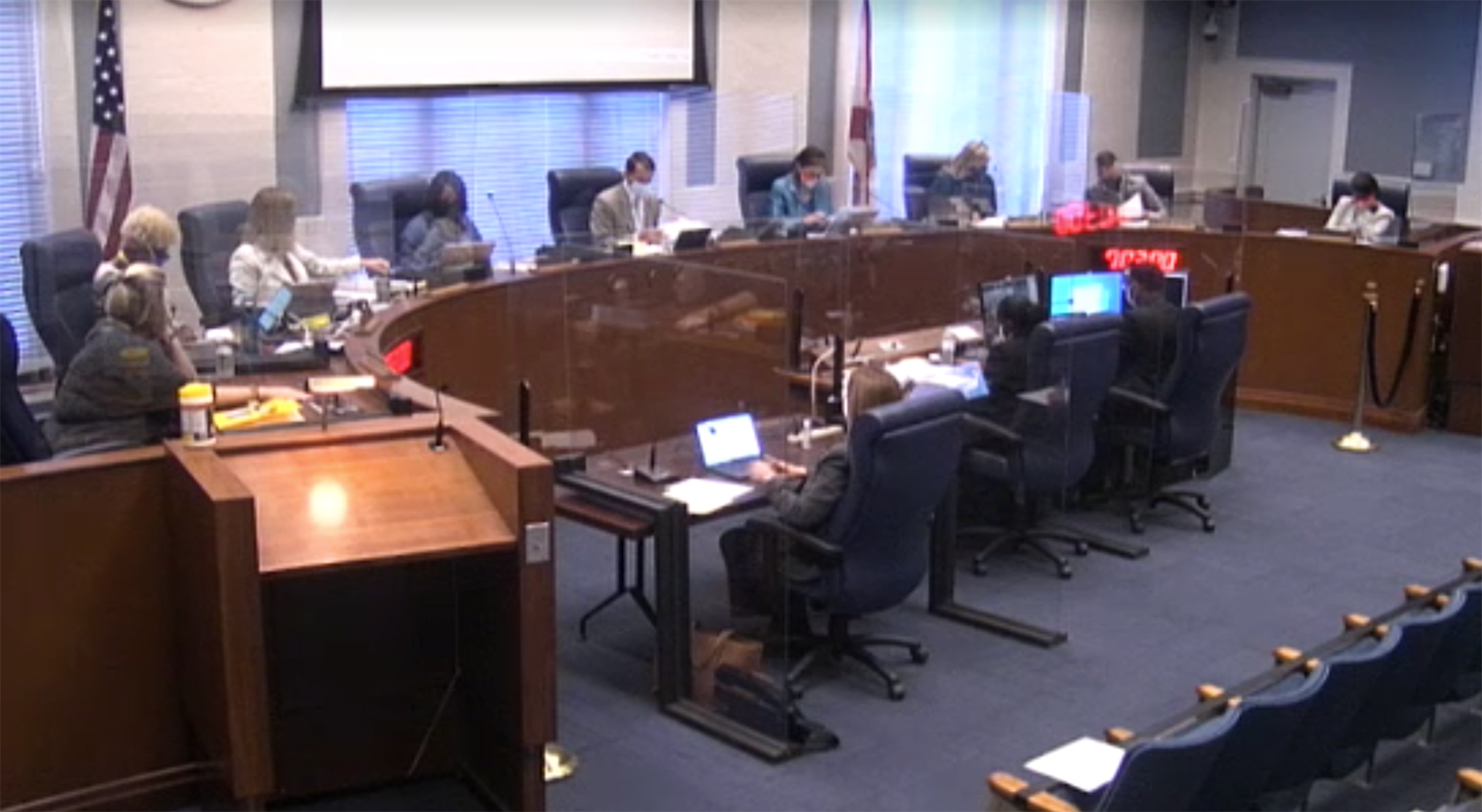 St. Petersburg council meeting on December 3rd.
St. Petersburg council meeting on December 3rd.
In the recent months, there has been transformation in some local and national food policies. From St. Petersburg passing a new urban agriculture ordinance to funding for regional food systems and community resiliency work in East Central Florida, below are some of the latest developments in food policy.
St. Petersburg Unanimously Passes Urban Agriculture Ordinance
On December 3rd, St. Petersburg city council members unanimously passed the LDR 2020-05 ordinance which will expand opportunities for the production and sale of locally grown produce, a move that will help address the issue of food insecurity in the city while providing economic benefits for residents interested in growing and selling their own food.
The ordinance, which amends the city’s land development regulations, will go back before city council for a second reading in January. Key elements include:
-
Eliminating the not-for-profit requirements for community gardens and extending the initial permit period.
-
Lowering the cost of community garden permits and roadside vending market permits from $100 to $50, with renewal applications dropping from $50 to $10.
-
Allowing commercial gardens and greenhouses as permitted uses, rather than special exceptions, in industrial traditional and industrial suburban zones.
-
Allowing sales of produce grown onsite on residential properties in single-family and multi-family districts. That includes value-added and honeybee products. Home produce sales would be allowed up to 36 events per year.
-
Allowing garden-related structures, including hoop houses, cold frames, greenhouses and vertical structures.
-
Allowing produce sales from vehicles and on vacant non-residential property city-wide.
More information can be found here. View the full ordinance here.
East Central Florida Regional Planning Council Awarded Funds to Support Regional Food Systems and Community Resiliency Work
The ECFRPC was awarded almost $75K in CPAT grants to support its regional food systems and community resiliency work. The Council was granted $40,000 to develop the East Central Florida Food Resiliency Action Plan for a more resilient local, county and regional food system and $34,000 to create a Strategic Resilience Action Plan for the recently established East Central Florida Regional Resilience Collaborative. Thanks to the program, ECFRPC staff will also be working with the cities of Sanford and Winter Springs.
More information can be found here.
U.S. Department of Labor Announces New Regulation that Changes Foreign Farm Workers’ Wage-Rate Protections
On Tuesday, November 2nd, the U.S. Department of Labor (DOL) announced a new regulation under the H-2A agricultural guestworker program that will change the main wage-rate protection for U.S. and foreign workers at agricultural employers that use the H-2A temporary foreign agricultural worker program. From 2021 through 2022, DOL will freeze minimum wages for over 200,000 seasonal farmworkers participating in the H-2A visa program at current levels, which were set at the end of 2019. Starting in 2023, it will then peg future wage increases to the Bureau of Labor Statistics’ employment cost index, which DOL says will raise wages at a lower rate than under current methodology. Previously, the agency adjusted these rates every year to reflect pay fluctuations in the farm labor market. Experts believe that this new move will effectively result in a pay decrease.
View the final rule here.
US Agricultural Alliance Releases Transformative Climate Policy Recommendations
On November 18th, an alliance of groups representing farmers, forest owners, the food sector, state governments and environmental advocates today unveiled an unprecedented set of recommendations to guide the development of federal climate policy. The group developed more than 40 recommendations based on three principles: agricultural and forestry climate policies must be built upon voluntary, incentive-based programs and market-driven opportunities; they must promote resilience and adaptation in rural communities; and they must be science-based.
Read the full recommendations here.
Justice for Black Farmers Act Introduced to Congress
On November 19th, the Justice for Black Farmers Act was introduced to Congress by U.S. Senators Cory Booker (D-NJ), Elizabeth Warren (D-MA), and Kirsten Gillibrand (D-NY). The bill is aimed at addressing and correcting historic discrimination within the U.S. Department of Agriculture in federal farm assistance and lending that has caused Black farmers to lose millions of acres of farmland and robbed Black farmers and their families of hundreds of billions of dollars of inter-generational wealth.
More information can be found here.
First Black Chairman of House Ag Will Fight Climate Change, Rural-Urban Split
On December 3rd, Representative David Scott of Georgia defeated a California rival in a vote among majority-party Democrats on Thursday to become the first Black chairman of the House Agriculture Committee. Scott, who represents a suburban Atlanta district with 313 farms, pledged to tackle an array of issues, most prominently climate change and the rural-urban split, in the new session of Congress opening on Jan. 3rd. With Scott’s election, three of the “four corners” of food and ag policy in Congress will be leading the House and Senate Agriculture committees for the first time.
More information can be found here.
Environmental Protection Agency (EPA) Proposes New Restrictions on Chlorpyrifos
On December 4th, the Environmental Protection Agency (EPA) proposed new restrictions on chlorpyrifos, an insecticide used for a large variety of agricultural and non-agricultural uses. EPA is proposing: label amendments limiting application to address potential drinking water risks of concern; additional personal protection equipment and application restrictions to address potential occupational handler risks of concern; and spray drift mitigation, in combination with the use limitations and application restrictions identified to address drinking water and occupational risks, to reduce exposure to non-target organisms.
More information can be found here.